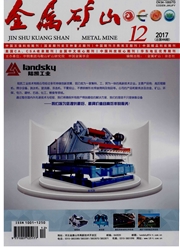

 中文摘要:
中文摘要:
为了解印度芥菜对铀的生理响应与积累特征,进行了不同铀浓度(0、1、5、20 mg/kg)胁迫下印度芥菜的盆栽试验。结果表明:印度芥菜生长初期受铀的影响较小,生长时间越长、铀胁迫浓度越高,生长情况受影响越明显;低浓度的铀胁迫可刺激印度芥菜光合色素和可溶性蛋白质的合成,但随着铀浓度的提高,植物光合色素和可溶性蛋白质含量明显下降;铀胁迫导致印度芥菜体内的膜脂过氧化产物MDA的含量随着土壤铀浓度的提高而上升,铀对植物叶片的膜脂过氧化影响显著;印度芥菜对铀的富集量随土壤铀浓度的提高而提高,根部对铀的富集能力远强于茎叶部。因此,印度芥菜对铀污染土壤的植物修复具有潜在的应用价值。
 英文摘要:
英文摘要:
Pot experiments were conducted to investigate the changes of characteristics of growth response and accumulation of uranium in Brassica juncea under different uranium concentration( 0,1,5,20 mg / kg) stress. The results show that: uranium has little effects on early growth age of Brassica juncea. The longer the growth time,the higher the stress concentration of uranium,and the more obviously the growth status being affected; Low concentration of uranium stress can stimulate synthesis of chlorophyll and soluble protein in Brassica juncea,while with the increase of the concentration of the uranium,chlorophyll and soluble protein in Brassica juncea decrease dramatically; Uranium stress lead to the content of membrane lipid peroxidation products MDA in Brassica juncea increasing with the concentration of uranium in soil,so uranium significantly affects membrane lipid peroxide in plant leaves; Uranium enrichment quantity increased with uranium concentration in the soil,and the roots have a higher uranium enrichment capacity than that of the stem leaf. Therefore,Brassica juncea has potential application value in phytoremediation of soil contaminated by uranium.
 同期刊论文项目
同期刊论文项目
 同项目期刊论文
同项目期刊论文
 期刊信息
期刊信息
